








Black Horse Health
Verified Center
This provider's information has been quality-checked by Recovery.com's Research Team for accuracy and completeness, including center verification through appropriate third-party organizations.
Treatment Focus
This center primarily treats substance use disorders, helping you stabilize, create relapse-prevention plans, and connect to compassionate support.
Primary Level of Care
Offering intensive care with 24/7 monitoring, residential treatment is typically 30 days and can cover multiple levels of care. Length can range from 14 to 90 days typically.
Treatment Focus
This center primarily treats substance use disorders, helping you stabilize, create relapse-prevention plans, and connect to compassionate support.
Primary Level of Care
Offering intensive care with 24/7 monitoring, residential treatment is typically 30 days and can cover multiple levels of care. Length can range from 14 to 90 days typically.
Private Pay
You pay directly for treatment out of pocket. This approach can offer enhanced privacy and flexibility, without involving insurance. Exact costs vary based on program and length of stay. Contact the center for specific details.
Black Horse Health
Black Horse Health
About Black Horse Health
Black Horse Health is a boutique treatment center specializing in substance use recovery, mental health stabilization, chronic pain management, trauma recovery, and process addiction. They offer detox, 24/7 residential care, day treatment that allows clients to go home at the end of the day, and a flexible intensive outpatient program (IOP). Their integrated approach helps clients harness the power of wellness to promote healing and sustainable recovery on all levels: mind, body, and spirit.
Focus on the Whole Picture
At Black Horse Health, they understand health issues such as substance use disorder (SUD) or trauma don’t exist in isolation. They look at other aspects of each client’s health and well-being, and integrate science-backed treatments with holistic practices for comprehensive healing. Their treatment methods help clients:
- Change negative thought patterns and develop healthier coping strategies
- Safely process painful experiences and reduce emotional distress
- Encourage creative self-expression and mindful calm
- Restore physical wellness
Recover in a Charming Neighborhood
Black Horse Health is located in The Heights, an inviting, walkable neighborhood with historic charm, green spaces, and modern conveniences. The facility is also close to the Texas Medical Center, with easy access to specialists as needed. During residential treatment, clients stay in private or shared rooms, enjoy meals prepared by a chef, and have on-site access to a fitness center, billiards, pool, and outdoor lounge.
Stay Connected to Maintain Progress
Black Horse Health provides ongoing support through its alumni programs, intensive outpatient programs (IOP), and outpatient wellness opportunities. Alumni share challenges and victories in weekly meetings, and enjoy substance-free social events and staying connected through a digital platform. Aftercare also includes 1-on-1 check-ins, recovery coaching, crisis support, and relapse prevention, plus additional training to build practical and relational skills that will help clients maintain progress made in treatment.

Highlights from the Center
Highlights
These highlights are provided by and paid for by the center.
Wellness Emphasis
Pool
Master's and Doctoral Level Therapists
Private Rooms Available
Center Overview
Treatment Focus
This center primarily treats substance use disorders, helping you stabilize, create relapse-prevention plans, and connect to compassionate support.
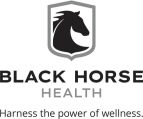
Black Horse Health
Pricing and Program Length
Estimated Center Costs
The cost listed here ($49,500 for 30 days), is an estimate of program cost. Center price can vary based on program and length of stay. Contact the center for more information. Recovery.com strives for price transparency so you can make an informed decision.




Recovery.com Verified Listing
Recovery.com verified that the name, location, contact information and license to operate for this treatment provider are valid and up-to-date.

Licensed by Texas DSHS
Recovery.com is an independent, third-party mental health resource. Verification does not imply endorsement and does not guarantee the quality of treatment services.
Meet Your Care Team

Tonda Chapman
Chief Executive Officer and Founding Partner
MBA
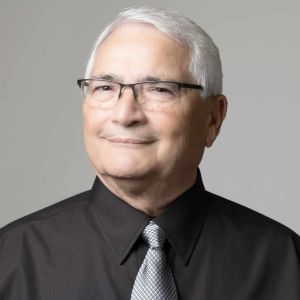
Tony Chapman
Chief Operations Officer and Founding Partner

Ben Carrettin
Chief Clinical Officer
LPC-S, MAC, NCC

Lisa Hale
Director of Family Services, Primary Clinician
LPC-S, LCDC

Ricka Messerve
Director of Admissions

Paul Davis
Doctor of Chiropractic, Director of Pain and Wellness
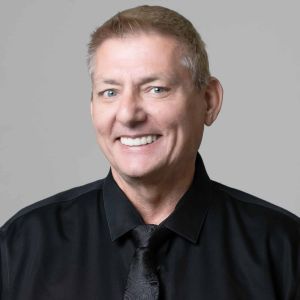
Monte Rose
Primary Clinician
LCDC-I
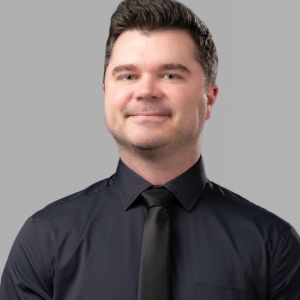
Martin Gaudrault
National Director of Business Development

David Castele
Primary Clinician, Pain Specialist
LCSW
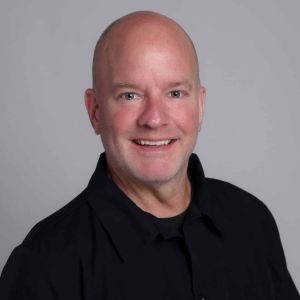
Earl Bebeau
Head Chef

Angie Woodle
Lead Recovery Advocate

Courtney Nixon
Director of Business Development
Your Care Options
Specializations
Detox
Detox fully and safely removes toxic substances from the body, allowing the next steps in treatment to begin with a clean slate.
Chronic Pain Management
Long-term physical pain can have an affect on mental health. Without support, it can also impact your daily life and even lead to addiction.
Co-Occurring Disorders
A person with multiple mental health diagnoses, such as addiction and depression, has co-occurring disorders also called dual diagnosis.
Experiential Therapy
With this approach, patients heal by doing. Therapists help patients process difficult emotions to speak, using guided activities like art or dance.
Holistic
A non-medicinal, wellness-focused approach that aims to align the mind, body, and spirit for deep and lasting healing.
Residential
In a residential rehab program, patients live onsite, with access to daily treatment and 24-hour care. An average stay is 30-90 days.
Trauma
Some traumatic events are so disturbing that they cause long-term mental health problems. Those ongoing issues can also be referred to as "trauma."
Wellness
Wellness philosophies focus on the physical, mental, and spiritual wellness of each patient, helping them restore purpose with natural remedies.
Who We Treat
Men and Women
Men and women attend treatment for addiction in a co-ed setting, going to therapy groups together to share experiences, struggles, and successes.
Treatment Services
Day Treatment
In a PHP, patients live at home but follow an intensive schedule of treatment. Most programs require you to be on-site for about 40 hours per week.
Detox
Detox fully and safely removes toxic substances from the body, allowing the next steps in treatment to begin with a clean slate.
Intensive Outpatient Program
In an IOP, patients live at home or a sober living, but attend treatment typically 9-15 hours a week. Most programs include talk therapy, support groups, and other methods.
Outpatient
During outpatient rehab, patients attend a structured treatment program while continuing to live at home.
Residential
In a residential rehab program, patients live onsite, with access to daily treatment and 24-hour care. An average stay is 30-90 days.
Approaches
Evidence-Based
A combination of scientifically rooted therapies and treatments make up evidence-based care, defined by their measured and proven results.
Holistic
A non-medicinal, wellness-focused approach that aims to align the mind, body, and spirit for deep and lasting healing.
Personalized Treatment
The specific needs, histories, and conditions of individual patients receive personalized, highly relevant care throughout their recovery journey.
Twelve Step
Incorporating spirituality, community, and responsibility, 12-Step philosophies prioritize the guidance of a Higher Power and a continuation of 12-Step practices.
Therapies
1-on-1 Counseling
Patient and therapist meet 1-on-1 to work through difficult emotions and behavioral challenges in a personal, private setting.
Meditation & Mindfulness
A practiced state of mind that brings patients to the present. It allows them to become fully aware of themselves, their feelings, and the present moment.
Transcranial Magnetic Stimulation
Localized magnetic pulses stimulate areas of the brain to increase brain activity and reduce abnormal functions.
Art Therapy
Visual art invites patients to examine the emotions within their work, focusing on the process of creativity and its gentle therapeutic power.
Craniosacral Therapy
A practitioner uses light touch around the head, neck, and back to improve the flow of fluids in the central nervous system, relieving tension and pain.
Equine Therapy
Guided interactions with trained horses, their handler, and a therapist can help patients improve their self-esteem, trust, empathy, and social skills.
Expressive Arts
Creative processes like art, writing, or dance use inner creative desires to help boost confidence, emotional growth, and initiate change.
Conditions We Treat
Schizophrenia
Schizophrenia is a serious mental health condition that causes hallucinations, delusions, and disordered thinking.
ADHD, ADD
ADHD is a common mental health condition caused by dopamine imbalance. Common symptoms include inattention, hyperactivitiy, and impulsivity.
Anxiety
Anxiety is a common mental health condition that can include excessive worry, panic attacks, physical tension, and increased blood pressure.
Bipolar
This mental health condition is characterized by extreme mood swings between depression, mania, and remission.
Chronic Pain Management
Long-term physical pain can have an affect on mental health. Without support, it can also impact your daily life and even lead to addiction.
Depression
Symptoms of depression may include fatigue, a sense of numbness, and loss of interest in activities. This condition can range from mild to severe.
Gambling
Excessive, repetitive gambling causes financial and interpersonal problems. This addiction can interfere with work, friendships, and familial relationships.
Gaming
Compulsive gaming is most often a problem for children and teens. The disorder can affect physical health, sleep, and the ability to focus at school.
Internet Addiction
Internet addiction is common among children teens. This compulsive disorder can damage relationships, school performance, sleep habits, and physical health.
Substances We Treat
Alcohol
Using alcohol as a coping mechanism, or drinking excessively throughout the week, signals an alcohol use disorder.
Benzodiazepines
Benzodiazepines are prescribed to treat anxiety and sleep issues. They are highly habit forming, and their abuse can cause mood changes and poor judgement.
Cocaine
Cocaine is a stimulant with euphoric effects. Agitation, muscle ticks, psychosis, and heart issues are common symptoms of cocaine abuse.
Drug Addiction
Drug addiction is the excessive and repetitive use of substances, despite harmful consequences to a person's life, health, and relationships.
Heroin
Heroin is a highly addictive and illegal opioid. It can cause insomnia, collapsed veins, heart issues, and additional mental health issues.
Methamphetamine
Methamphetamine, or meth, increases energy, agitation, and paranoia. Long-term use can result in severe physical and mental health issues.
Opioids
Opioids produce pain-relief and euphoria, which can lead to addiction. This class of drugs includes prescribed medication and the illegal drug heroin.
Prescription Drugs
It's possible to abuse any drug, even prescribed ones. If you crave a medication, or regularly take it more than directed, you may have an addiction.
Languages
Aftercare
Care Designed for Your Needs
Special Considerations
Off-Site Activities
Learn More About the Center
Support Families on the Journey to Healing
Learn how the family program rebuilds trust, strengthens connection, and inspires lasting recovery together.
Explore Chronic Pain Treatment Options
Discover effective treatments that address the root causes of chronic pain, not just symptoms.
Start Healing from Trauma
Begin processing trauma with therapies that build resilience, restore peace, and empower lasting change.
The Black Horse Blog
Explore clinical insights and the latest developments in mental health research.





